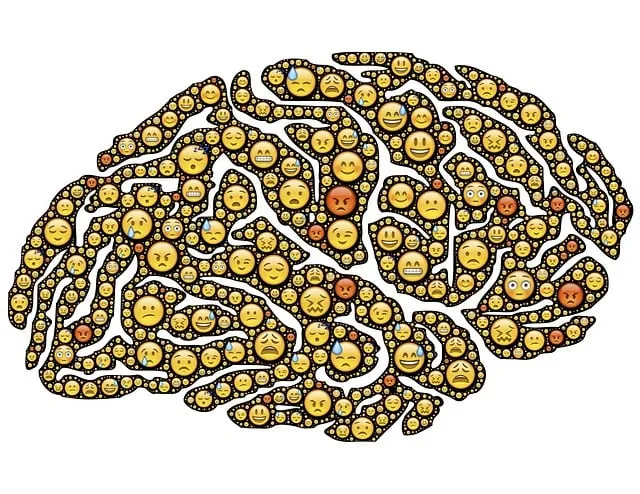The Castle Rock Kaiser Permanente Mental Health Access Center highlights the growing demand for accessible mental healthcare, with technology, especially mental wellness apps, leading this transformation. Successful apps should offer intuitive features like journaling and personalized coaching, track mood patterns, and incorporate mindfulness techniques. The center's strategic app development approach emphasizes user-centric design, evidence-based practices, continuous improvement, and cultural sensitivity to ensure these digital tools remain vital resources for the community.
Mental wellness apps have emerged as powerful tools in the digital age, addressing growing concerns about psychological well-being. With an increasing demand for accessible and affordable mental healthcare, these applications offer a promising solution. This article explores the development of such apps, focusing on a successful case study at Castle Rock Kaiser Permanente’s Mental Health Access Center. We’ll delve into the significance of technology in healthcare, design strategies for user engagement, and implementation tips for effective mental wellness app creation.
- Understanding the Need for Mental Wellness Apps: Exploring the Role of Technology in Healthcare
- Designing Effective Features and Functionality for User Engagement and Support
- Development, Launch, and Continuous Improvement: Strategies for a Successful Mental Health App Implementation at Castle Rock Kaiser Permanente
Understanding the Need for Mental Wellness Apps: Exploring the Role of Technology in Healthcare

In today’s fast-paced world, mental wellness has gained significant importance, leading to a growing demand for accessible and effective solutions. Castle Rock Kaiser Permanente Mental Health Access Center highlights the need for innovative approaches to healthcare, particularly in addressing psychological well-being. Technology plays a pivotal role in this transformation, offering numerous opportunities to enhance mental health support.
Mental wellness apps have emerged as powerful tools, providing individuals with convenient and confidential ways to manage their emotional well-being. These applications can facilitate self-esteem improvement, depression prevention, and mood management—all crucial aspects of overall mental health. By leveraging technology, users can access resources and guidance from the comfort of their homes, breaking down barriers to care and promoting proactive mental wellness practices.
Designing Effective Features and Functionality for User Engagement and Support

When developing a mental wellness app like the Castle Rock Kaiser Permanente mental health access center, the key lies in creating intuitive and engaging features that cater to diverse user needs. Incorporating tools for self-esteem improvement through interactive exercises, such as Mental Wellness Journaling Exercises and Mental Wellness Coaching Programs Development, can empower users to actively manage their mental health. Effective design involves a balance of therapeutic resources and customizable experiences, ensuring users have tailored guidance for their unique journeys.
Functionality should support continuous engagement by offering personalized recommendations based on user interactions and progress. For instance, incorporating features that track mood patterns or provide mindfulness techniques can help individuals understand their mental wellness trends. By integrating these practices into the app’s core functionality, users receive real-time support, making it easier to access resources like Self-Esteem Improvement exercises whenever needed, thus fostering consistent improvement in mental health and well-being.
Development, Launch, and Continuous Improvement: Strategies for a Successful Mental Health App Implementation at Castle Rock Kaiser Permanente

At Castle Rock Kaiser Permanente Mental Health Access Center, a robust strategy for app development and implementation is crucial to ensure success. The initial phase involves designing an intuitive user interface that caters to diverse needs, incorporating evidence-based practices such as Stress Reduction Methods and Compassion Cultivation Practices. By involving subject matter experts and mental health professionals in the design process, the app can offer tailored solutions while maintaining high standards of care.
Upon launch, continuous improvement is paramount. Regular user feedback and analytics play a vital role in enhancing the app’s functionality and user experience. Incorporating features that address Cultural Sensitivity in Mental Healthcare Practice ensures inclusivity and accessibility for all users. This iterative approach allows for the app to evolve alongside the latest research and community needs, solidifying its position as an indispensable tool for mental health support at Castle Rock Kaiser Permanente.
Mental wellness apps have emerged as powerful tools in the digital age, particularly within healthcare institutions like Castle Rock Kaiser Permanente’s Mental Health Access Center. By leveraging technology, these apps offer personalized and accessible support for individuals seeking mental well-being. Through a combination of evidence-based practices and engaging features, as highlighted in this article, developers can create effective solutions that cater to diverse user needs. The success story of the Castle Rock Kaiser Permanente implementation demonstrates the potential for mental health app development to transform lives, emphasizing the need for continuous improvement and innovation in this rapidly growing field.






